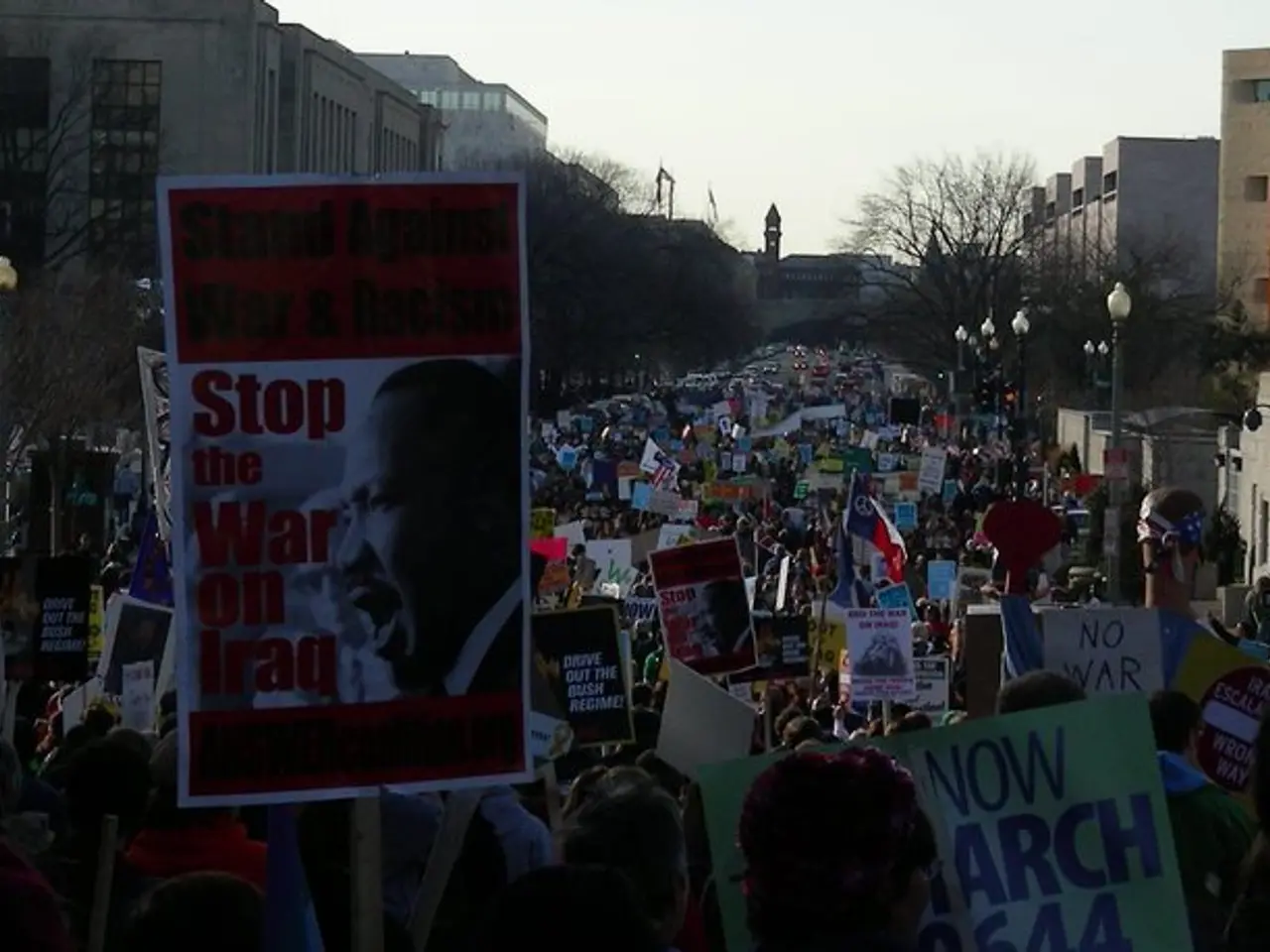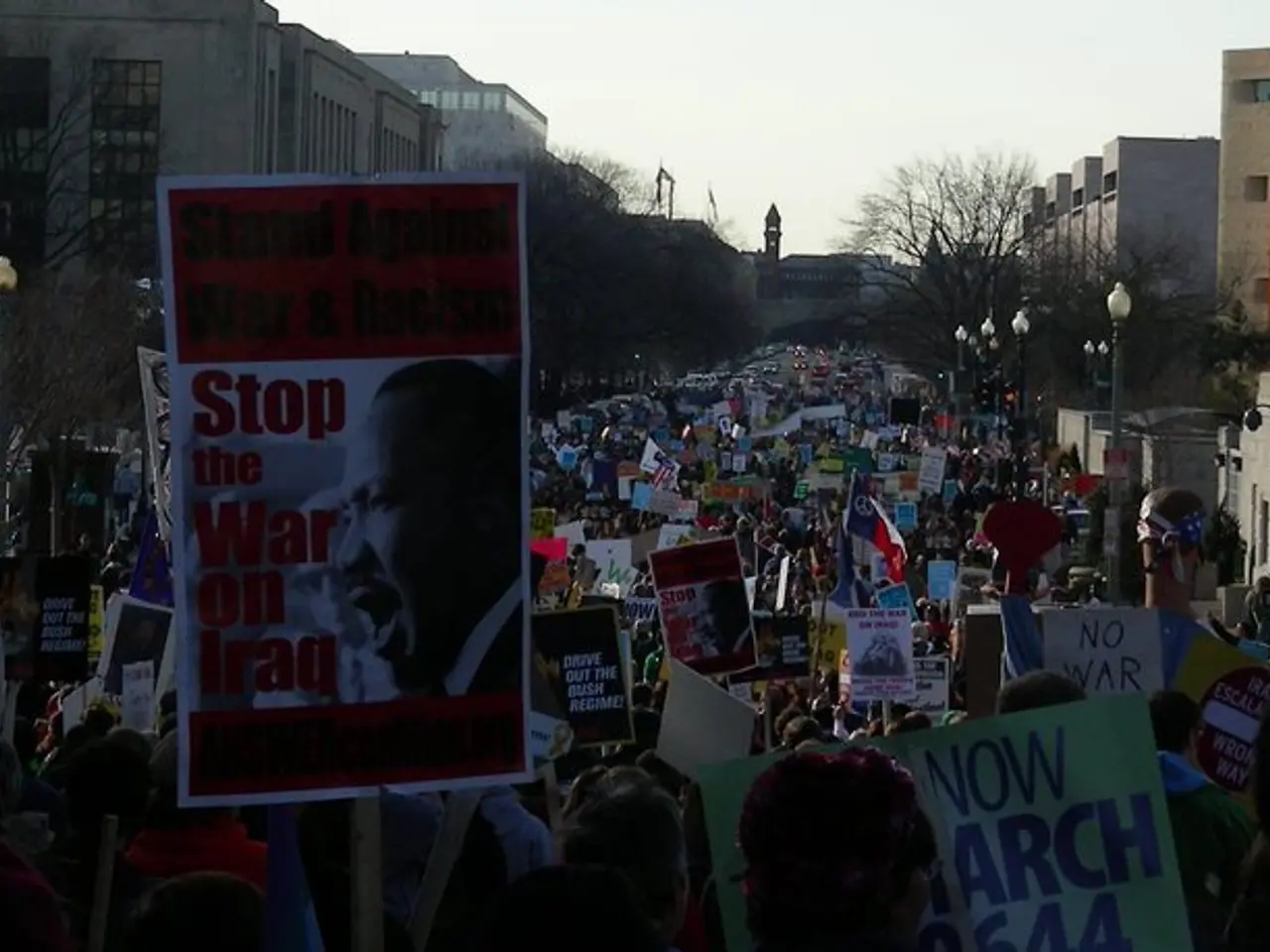Election for Chief Justice: Brosius-Gersdorf dismisses criticism as 'libelous' and 'untrue' - Election judge ruling dismissed as "defamatory" and "baseless" by Brosius-Gersdorf
Frauke Brosius-Gersdorf, a renowned German legal scholar and professor of Public Law at the University of Potsdam, has found herself at the centre of a political storm after her nomination as a candidate for a seat on Germany’s Federal Constitutional Court. The election, initially scheduled for July 11, 2025, has been postponed due to the controversy surrounding her candidacy[2][4].
The source of the controversy is rooted in ideological disagreements, particularly on contentious issues such as abortion rights and the headscarf ban. Brosius-Gersdorf's stance on these matters has faced strong opposition from the conservative Christian Democrats (CDU) and Christian Social Union (CSU) parliamentary groups[1][3].
The controversy escalated when a plagiarism allegation surfaced in relation to Brosius-Gersdorf's scholarly work, further intensifying the opposition[1][3]. This claim, coupled with the existing ideological objections, led the CDU/CSU parliamentary group to withdraw their initial support and request the SPD to remove her nomination from the Bundestag agenda[1].
However, the SPD refused, leading the conservatives to threaten to abstain in the vote, effectively blocking the two-thirds majority required for Brosius-Gersdorf's election[1]. This standoff has caused a major political crisis within the ruling coalition, exposing internal coalition fragilities shortly after Chancellor Friedrich Merz’s assumption of office[3].
In response to the criticism, Brosius-Gersdorf has categorically rejected the main accusation that she does not grant unborn life the guarantee of human dignity and is in favour of abortion until birth, labelling it as "defamatory" and "false"[2]. She has also discussed the constitutionality of headscarf bans, stating that a ban for teachers in state schools might be unconstitutional, but a ban for legal trainees in certain courtroom situations could be constitutional[2].
Despite the postponement of the election, the Union continues to express reservations about Brosius-Gersdorf's candidacy for the Federal Constitutional Court[2]. The CSU leader, Markus Söder, has even called for a new candidate in the election[2].
The delay in the election process has sparked strong reactions among political actors, with SPD leaders and supporters decrying the developments as damaging to democracy and coalition cohesion[3]. As the controversy continues, the future of Brosius-Gersdorf's nomination remains uncertain.
The ECSC (Elective Constituent Assembly) has become a focal point in the ongoing political drama, as the delayed election of Frauke Brosius-Gersdorf to Germany's Federal Constitutional Court is deeply entwined with policy-and-legislation disputes, mainly surrounding contentious issues such as abortion rights and the headscarf ban. The escalating tension has been fueled by ideological disagreements andthe surface of a plagiarism allegation.
Given the conservative Christian Democrats (CDU) and Christian Social Union (CSU) parliamentary groups' opposition to Brosius-Gersdorf's stance on these matters, the Union continues to express reservations about her candidacy for the Federal Constitutional Court, with the CSU leader, Markus Söder, advocating for a new candidate in the election. The political upheaval and the delay in the election process have sparked strong reactions, with some decrying the developments as damaging to democracy and coalition cohesion.





